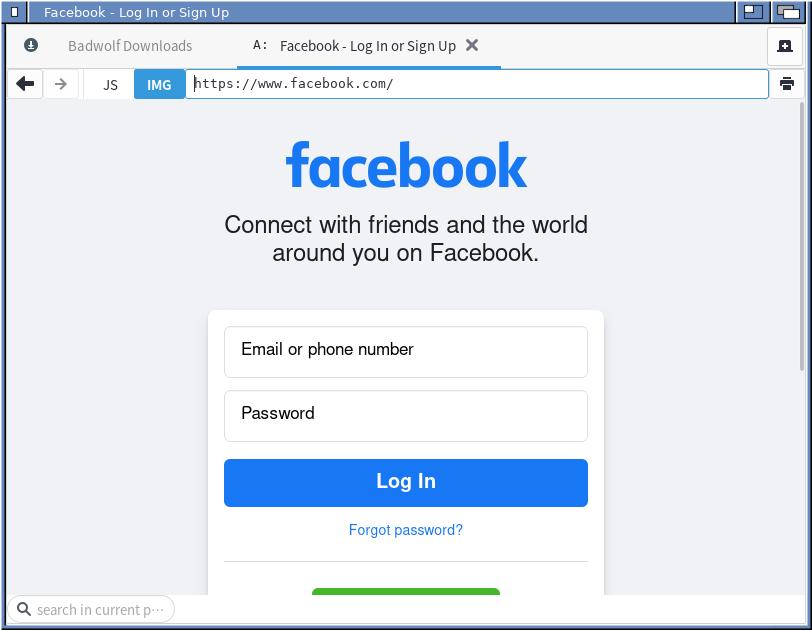On February 7, I came across an article by Mr. Michael Willems in London’s City A.M. about the ongoing battle between Facebook (or “Meta,” as the broader company is now known) and European Union regulators. According to Mr. Willem’s article, Meta (or Facebook) stated in its annual report to the U.S. Security and Exchange Commission that it may not be able to continue offering many of its products to users in the European Union of the European Union follows through on prohibiting it from storing information about European Union users on U.S. servers. When I read the article, a question occurred to me: Is Facebook (or Meta) making a threat or a promise? I found that a pair of European Union officials offered there take very shortly after the question of Facebook’s threat (or promise) crossed my mind.
A Threat Or a Promise?
I am on record here at The New Leaf Journal as not being a fan of Facebook, having suggested that people curate their own RSS feed collections for news as an alternative to Facebook (an article prompted by a controversy involving Facebook’s following through on threats against Australia). I am similarly no fan of Instagram, having suggested Pixelfed as an alternative and offered my take on what draws many to the platform. Finally, I prefer products that treat users as customers or human beings rather than commodities.

With all this having been noted, it should come as no surprise that I was unsure whether to understand Facebook’s (or “Meta’s”) ominous statement about its European future as a threat or a promise.
Germany and France: Do You Promise?
Less than 24 hours after the threat or promise question crossed my mind, two European Union ministers sounded more than inclined to ask Facebook (they do not seem to worry about the name-change) if it promised to follow through on what it had intended to be a threat.
Mr. Robert Habeck, the Economy Minister of Germany:
After I was hacked I have lived without Facebook and Twitter for four years and life has been fantastic.
Mr. Robert Habeck
(Lest there be any doubt, I recommend that New Leaf Journal readers consider dropping Facebook and Twitter of their own volition instead of waiting for someone to hack their accounts. If you must use Facebook, please practice good account security.)
The French Finance Minister, Mr. Bruno Le Marie:
I can confirm that life would be very good without Facebook and that we would live very well without Facebook.
Mr. Bruno Le Marie
This is a pure example of words meaning something different to the speaker than to the audience.
My Take On Meta and Sovereignty
I have not followed this particular dispute between the European Union and Facemeta (or whatever it is) too closely, and for that reason have no strong views on the particulars. However, I will note one poignant quote from Mr. Le Marie:
Digital giants must understand that the European continent will resist and affirm its sovereignty.
Mr. Bruno Le Marie
The ultimate question of sovereignty: Who rules? For obvious reasons, many in Europe are uncomfortable about the implications of the answer being Silicon Valley corporations. The issue becomes said corporations issue threats if they do not get their way. That, perhaps more than the specifics of one dispute or another, drives many of these conflicts.
These questions should also be of great concern to Americans, notwithstanding the fact that many of the social media companies at issue are ostensibly American. Meta, for whatever it is worth, is not the worst of our social media/ad-tech problems state-side, slotting in comfortably behind the Chinese Communist Party’s social experiment, TikTok, and the Twitter, which influences powerful decision makers and corporations in a way that is vastly disproportionate to its small active user-base. Meta is closer to Google’s tier of bad, with the caveat that unlike Google, Meta entirely lacks useful qualities.
On Facebook Generally
While Facebook’s user-base appears to have peaked, there still seems to be a large number of people who complain about Facebook while nevertheless using Facebook. I am sure that this is the case with other terrible social media platforms as well, but my non-scientific take is that it is most common with Facebook.
Facebook, like other malignant proprietary social media platforms that treat users as commodities, has perfected encouraging users to create and consume bad content over prolonged periods. What distinguishes Facebook from other platforms is that, like Google, it has made an effort to become a de facto portal to the internet for users, controlling their digital relationship, management, and information consumption in one omnipresent package. Facebook, unlike Google’s flagship social platform, YouTube, is largely incapable of yielding worthwhile public content.
(While all of the above is bad, I must state for the record that it pales in comparison to the Chinese Communist Party use of TikTok to conduct a social experiment on America’s youth – but I digress.)
To those who feel trapped on Facebook, I suggest trying something new. The best way to get away from Facebook is to delete your account. However, if that is not possible, the next best thing is to minimize Facebook’s role in your life. Isolate it from the rest of your browsing. Take control of your own information consumption. Use Facebook only to the extent that your friends and family refuse to communicate in any other way.
There are alternatives to Facebook in the form of software and services that treat people like people, just as there are ways of using technologies that you mostly own and control.